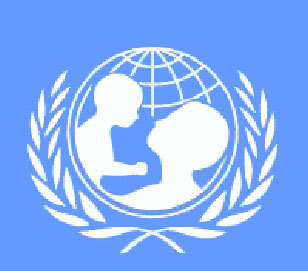UNICEF: Every day 1,500 women die giving birth
 Johannesburg - Every day 1,500 women die of avoidable complications in pregnancy in childbirth, the United Nations Children's Fund (UNICEF) said in a report released Thursday.
Johannesburg - Every day 1,500 women die of avoidable complications in pregnancy in childbirth, the United Nations Children's Fund (UNICEF) said in a report released Thursday.
The overall figure stood at 10 million women since 1990, with women in Africa south of the Sahara and south Asia most at risk, the report titled The State of the World's Children 2009 said.
Women in these regions were 300 times more likely to die in pregnancy and childbirth than in developed countries.
More than half the estimated 536,000 global maternal deaths in 2005 occurred in Africa, with Asian countries also featuring high levels.
India alone accounted for 22 per cent of global maternal mortality deaths in 2005, the report added.
In no other area of healthcare was the gap between rich and poor as wide, the agency said.
Moreover, 4 million babies do not survive beyond 28 days after birth.
Maternal and infant mortality figures had to be reduced by around 70 per cent by 2015 to reach the so-called UN Millennium Goals, UNICEF officials said at the launch of the report in South Africa and India.
Girls between 15 and 19 account for around 70,000 of the 500,000 deaths a year of childbirth complications worldwide, UNICEF Executive Director Ann M Veneman told journalists in Johannesburg
"This is not only a tragic personal loss for the family, it also leaves a long-term impact on the health and well-being of children and the development of communities and countries," Veneman said.
At least 78,000 women die every year in India during pregnancy and childbirth, according to a report.
"This means on average, every seven minutes one woman dies from complications related to pregnancy and childbirth," UNICEF said in a press release.
Most pregnancy and childbirth-related deaths occur in a handful of states in India: Uttar Pradesh, Uttaranchal, Bihar, Jharkhand, Orissa, Madhya Pradesh, Chhattisgarh, Rajasthan and Assam, according to the report.
At least 450 of every 100,000 women died of pregnancy-related causes in India in 2005, while the neonatal mortality rate was 39 per
1,000 live births in 2004.
While both figures represented a reduction in rates over previous years, faster progress in India was critical to improving maternal and newborn health on a global scale, the report said.
"We know what needs to be done to save the lives of the 78,000 women who die from pregnancy and childbirth each year in India. In addition, about 1 million neonatal deaths occur here annually," Karin Hulshof, UNICEF's India representative, said in New Delhi.
"Primary health care that embraces every stage of maternal, newborn and child health must be made available to all of India's most vulnerable women and children so that they can survive and thrive," Hulshof said.
Syeda Saiyidain Hameed, a member of India's Planning Commission, said rapid progress was possible if sound strategies backed by political commitment, adequate resources and collaborative efforts were applied in support of mothers and newborns.
Veneman said that most maternal and neonatal deaths could be prevented through proven interventions, such as adequate nutrition, antenatal care, skilled health workers at births, emergency obstetric and newborn care and post-natal visits for mothers and babies.
UNICEF has expressed growing concern over the collapse of public services in Zimbabwe, where unhygienic conditions were also affecting pregnant women and newborns.
"We hear reports of pregnant women crossing the border to give birth outside of the country," Veneman said Thursday.
South Africa's Health Minister Barbara Hogan, who also attended the launch, said the entire southern African region was being affected by the collapse of Zimbabwe's health system.
She said she was shocked in a meeting with Zimbabwean doctors who spoke of the lack of supplies, including antiretroviral drugs for AIDS patients.
"The entire public health system has collapsed - even the mortuaries are not operating," she said, adding that two bodies were being placed in each body bag. dpa